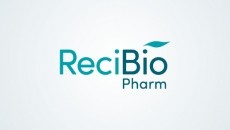Roche invests in new 'molecular machete' drug delivery enhancer
to dramatically enhance the delivery of subcutaneous drugs by
acting like a 'molecular machete'.
The novel technology was developed by Halozyme Therapeutics and is based on recombinant human hyaluronidase (rHuPH20).
Called Enhanze, the enzyme technology temporarily clears space in the matrix of tissues such as skin, allowing rHuPH20 to improve drug delivery by enhancing the entry of therapeutic molecules delivered through the skin, delivered by either subcutaneous (SC) or intramuscular (IM) or intravenous (IV) methods.
"This proprietary enzyme works by breaking down hyaluronic acid (HA), the gelatinous component of skin and tissue that traps a lot of the drug when it is delivered subcutaneously and prevents it being absorbed," Jonathan Lim, Halozyme CEO told In-PharmaTechnoliogist.com.
"In this way, when it is combined with an injectable drug it acts like a 'molecular machete,' facilitating increased bioavailability (better absorption) of the drug."
According to Lim, Enhanze can deliver up to 100 per cent of the subcutaneously-delivered drugs into the bloodstream - something that has been demonstrated in preclinical studies.P>"This compares with around only 60 per cent absorption for a typical MAb, with 40 per cent being trapped in the HA barrier," he said.
What is more, the enzyme only temporarily opens up the flow channels under the skin, with the effects lasting only 24 hours. After this time the HA begins to grown back.
"Because of this it has a nice safety profile," said Lim.
"Pharmacologically, this is a unique platform. Nobody has developed a similar drug delivery enhancing technique."
Enhanze works in injectable drugs up to 200 nanometres in size, and the particular focus for Hallozyme is monoclonal antibodies (MAbs), cytokines and recombinant enzyme-based treatments. It does not work on cellular-based treatments.
The technology has particular appeal for drug companies who want to convert drugs that can currently only be administered intravenously, into those that can be delivered by SC or IM injection.
This can benefit patients, and in addition, the US government is incentivising companies to develop treatments that don't involve a hospital stay, through its CMS Part D reimbursement policy.
""Our enzyme is FDA-approved so any company wanting to use this with an already-approved biologic drug should have a more expedited regulatory process," said Lim.
"In addition, because the technology increases bioavailability, companies can use it to either increase drug efficacy and frequency of administration, or to reduce the amount of dose required to optimise safety and also reduce costs due to the lower volume required per dose."
Roche will now use the technology to enhance up to 13 of its undisclosed new biologic drug targets over the life of the technology's patent.
The deal is exclusive for the drug giant for these 13 particular targets, although Lim said Halozyme is constantly looking for new licensing partners as well as developing a pipeline of its own.
"When you consider that there are almost 40 commercial and Phase III targets and over 1000 targets from discovery to Phase II being used, the possibilities for this technology are great," said Lim.
Under the deal with Roche, Halozyme will develop the enzyme and complete the technology transfer to its contract manufacturing partner, Avid Bioservices, based in California.
Avid will then manufacture the bulk active ingredient and then provide the finished enzyme product to Roche who will use it during the manufacturing process of its chosen experimental compounds.
Initially Roche will pay Halozyme $20m to apply the technology to three of its biologic targets and over the next ten years, Roche will also have the option to exclusively develop and commercialise rHuPH20 with an additional ten targets.
Pending the successful completion of clinical, regulatory, and sales events, Halozyme has the potential to earn $111m from further milestones.
"We hope to receive royalties from the first of Roche's drugs using rHuPH20 to reach the market by 2009-10," said Lim.
There is currently one other drug on the market using the technology, called Hylenex, which was developed by Halozyme and commercialised by Baxter for patients in hospice and palliative care.












